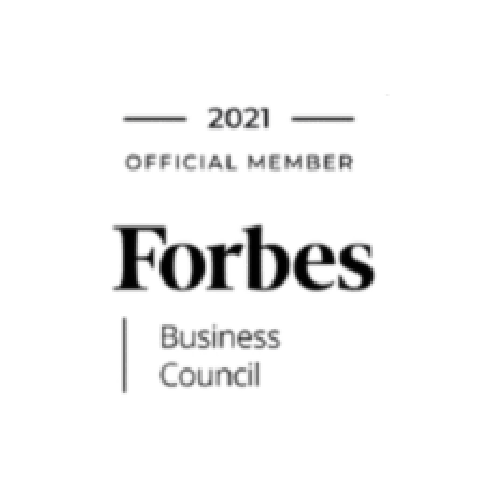Multifamily executives and property managers are involved in strategic decision-making, developing relationships with tenants and stakeholders, overseeing property maintenance and improvements, and ensuring regulatory compliance. These tasks often require critical thinking, problem-solving, and leadership skills that are currently challenging for AI systems to fully replicate, however there are plenty of tasks that can be more efficiently operated with AI.
Some examples of how AI can be used in multifamily includes support in major business roles by automating routine tasks, providing data-driven insights, and enhancing operational efficiency. AI tools can help multifamily executives and property managers make more informed decisions, streamline workflows, and improve the overall tenant experience. Ultimately, it is the combination of human expertise and technological advancements that is likely to bring the most effective results in multifamily operations.
Here are some ways that multifamily syndication and private equity firms can utilize and leverage AI for enhanced operations:
LEVERAGING AI IN MULTIFAMILY:
- Automated property management: AI-powered systems streamline tasks like lease management, rent collection, maintenance requests, and accounting.
- Tenant screening: AI algorithms analyze applicant data to predict tenant reliability, aiding in informed application decisions.
- Predictive maintenance: AI-based systems use data from sensors and IoT devices to monitor equipment health and predict maintenance needs.
- Chatbots and virtual assistants: Delivering exceptional customer experiences is a critical factor in building brand loyalty. AI enables businesses to offer personalized interactions at scale. By leveraging AI algorithms to analyze customer data, businesses can gain deeper insights into individual preferences, behavior patterns, and buying habits. This knowledge empowers organizations to tailor their marketing efforts, product recommendations, and customer service interactions, resulting in higher customer satisfaction, increased engagement, and improved conversion rates.
- Energy management: AI systems integrate with Iot devices to optimize energy usage based on factors like occupancy and weather, leading to savings and reduced utility costs.
- Enhanced security: AI-enabled video surveillance systems utilize computer vision to detect and identify security threats in real-time, differentiating between regular activities and suspicious behavior.
- Rent pricing optimization: AI tools analyze market trends, competitor pricing, and historical data to recommend optimal rent pricing.
- Opperational efficiency: AI’s advanced analytics capabilities enable organizations to gain a comprehensive understanding of their operational processes. By analyzing data from various sources, including IoT sensors, customer interactions, and supply chain operations, AI can identify bottlenecks, inefficiencies, and areas for improvement. Armed with this knowledge, businesses can optimize workflows, reduce costs, and enhance overall operational efficiency. AI-powered predictive maintenance systems, for example, can help prevent equipment failures, minimize downtime, and optimize maintenance schedules.
- Automation of repetitive tasks: One of the primary advantages of AI is its ability to automate repetitive and mundane tasks that consume valuable time and resources. By leveraging AI-powered systems, businesses can free up their workforce to focus on more strategic and creative endeavors. Tasks such as data entry, report generation, and routine customer inquiries can be efficiently handled by AI, enabling employees to channel their expertise into higher-value activities that drive growth and innovation.
Things to Consider:
While AI has undoubtedly demonstrated its capabilities in various domains, there remain specific areas within multifamily operations where humans reign supreme.
The human touch is indispensable when it comes to delivering personalized customer service. Establishing rapport, comprehending tenants’ concerns, and tackling intricate or delicate matters necessitate emotional intelligence, intuition, and a profound level of comprehension that AI systems may struggle to replicate entirely.
When faced with evaluating distinct tenant circumstances, negotiating lease terms, settling disputes, and managing exceptional or unconventional cases, nuanced decision-making that demands contextual awareness and adaptability comes into play. Humans excel at navigating intricate scenarios and making informed choices based on a multitude of factors.
In a world increasingly driven by technology, the value of human intervention remains evident in multifamily operations. While AI offers remarkable possibilities, the complexities of human interaction, judgment, and flexibility continue to position humans as irreplaceable assets in these crucial roles.
AI CHALLENGES & RISKS:
- Data privacy and security: AI tools often require access to large amounts of tenant and operational data. The collection, storage, and processing of this data raise concerns about privacy and security.
- Algorithmic bias and fairness: AI algorithms are trained on historical data, which may contain biases and inequalities. If these biases are not identified and addressed, AI systems can perpetuate and amplify discriminatory practices. In the context of multifamily operations, biases in tenant screening, pricing, or decision-making processes can lead to unfair treatment and discrimination. Regular monitoring, bias detection, and algorithmic transparency are necessary to minimize the risk of bias in AI systems.
- Loss of human connection: While AI can automate certain tasks, there is a risk of losing the human touch and personal connection that is crucial in the multifamily industry. Over-reliance on AI-powered customer service or interactions may lead to a diminished tenant experience and reduced satisfaction.
- Resistance to change and user adoption: Implementing AI tools in multifamily operations may face resistance from employees or tenants who may be hesitant to embrace new technologies or fear job displacement. Effective change management strategies, communication, and training programs are necessary to address concerns, facilitate user adoption, and ensure a smooth transition.
To mitigate these risks, multifamily companies should prioritize transparency, accountability, and ethical considerations when implementing AI tools. Regular audits, monitoring, and evaluations of AI systems can help identify and address potential issues. Additionally, ensuring data privacy and security measures, promoting diversity and inclusivity in AI models, and maintaining a balance between technology and human interaction is crucial for the responsible and effective use of AI in the multifamily industry.
AI TOOLS WE USE:
- Chat GPT- Pre-Content Curation Process
- SalesForce – AI customer journey
- HootSuite – Performance-Based Social Media
- PERQ – Leasing Efforts
- Fathom Notetaker – Transcription/ Recordings for Internal Meetings
- Mid Journey – Cooperative Design Efforts
- WriteSonic – Content Curation/ SEO
- Tawk- Chatbox
- ESG AI systems within our properties



















